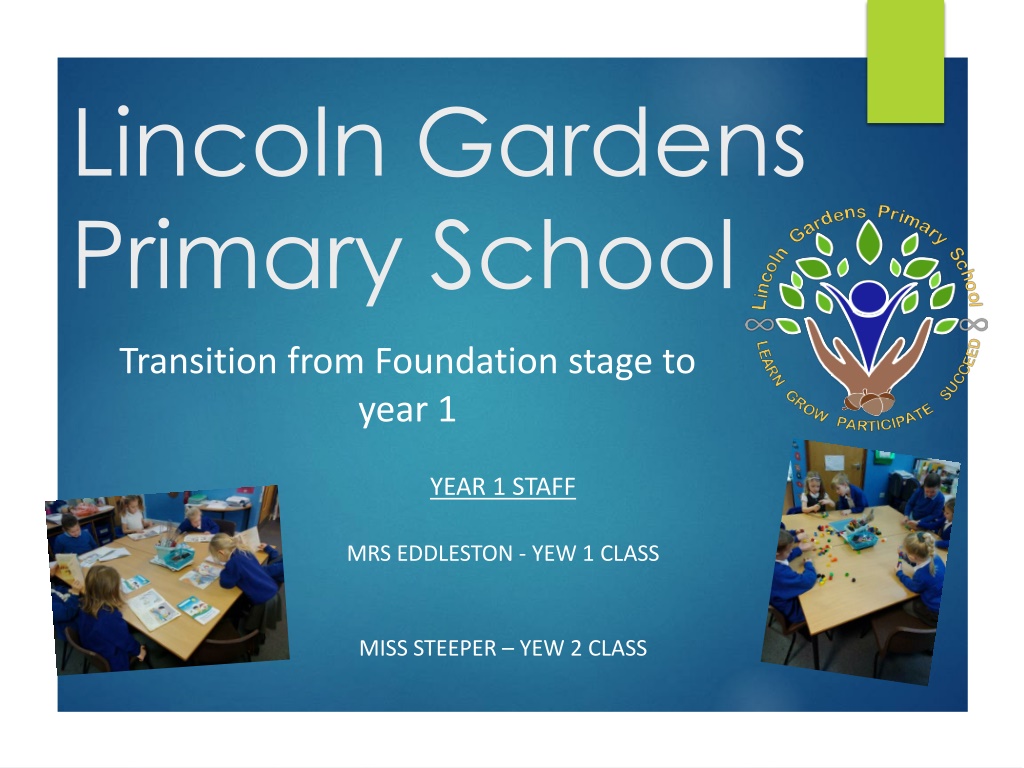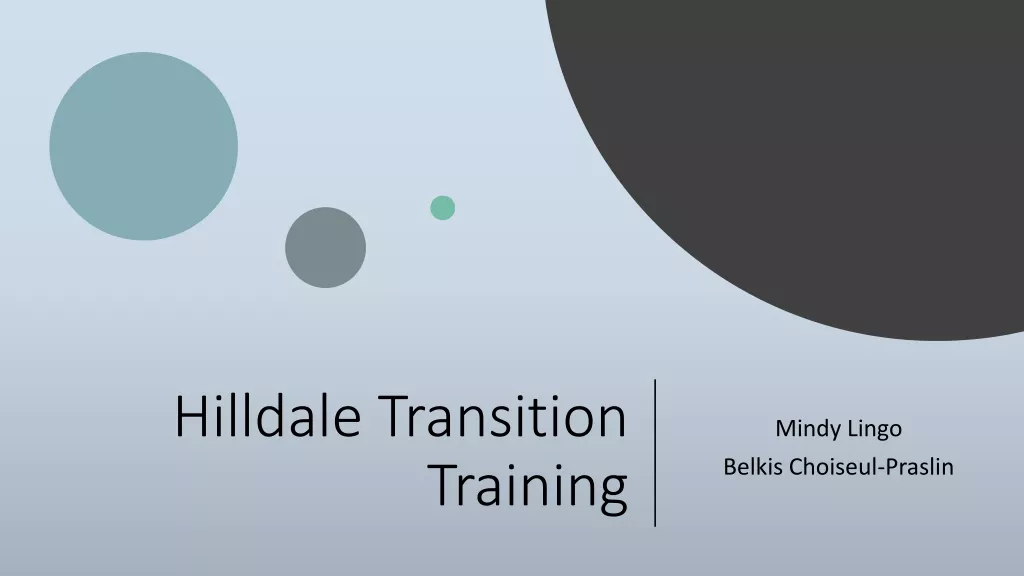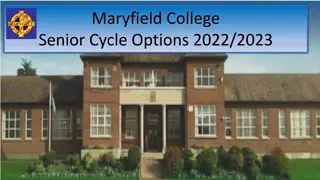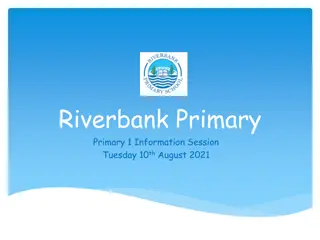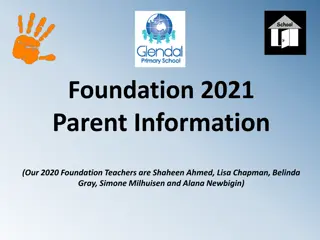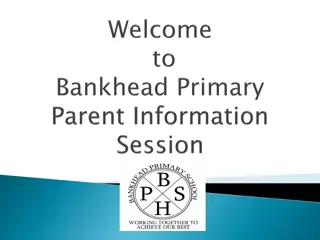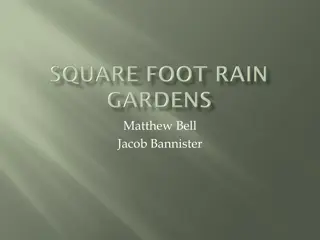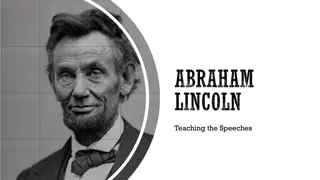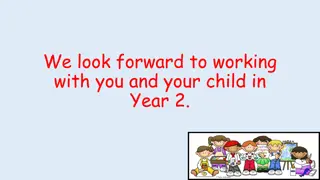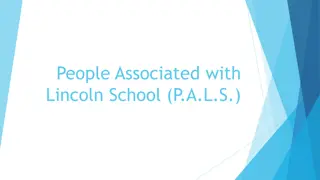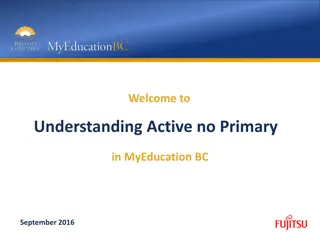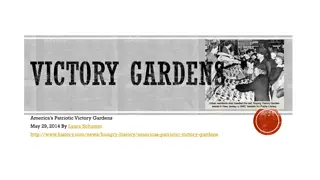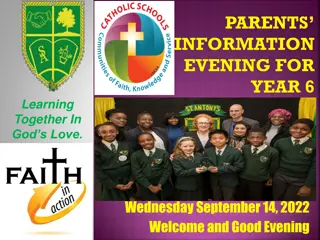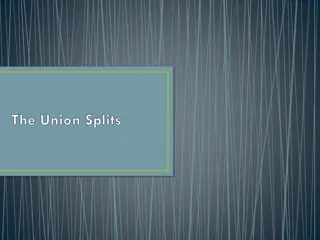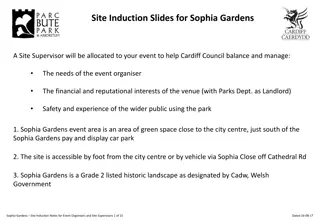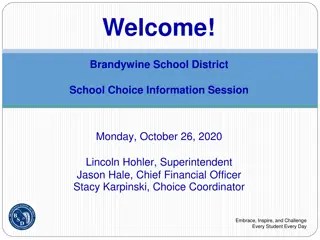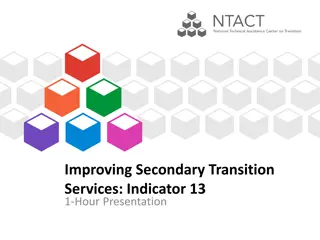Lincoln Gardens Primary School Year 1 Transition Information
Transitioning from the Foundation stage to Year 1 at Lincoln Gardens Primary School is outlined in this presentation. The school day schedule, curriculum adjustments, and teaching methods for Year 1 are provided to ensure a smooth transition for students. Emphasis is placed on building upon foundational skills while gradually introducing new concepts in literacy and mathematics.
Uploaded on Sep 26, 2024 | 0 Views
Download Presentation

Please find below an Image/Link to download the presentation.
The content on the website is provided AS IS for your information and personal use only. It may not be sold, licensed, or shared on other websites without obtaining consent from the author. Download presentation by click this link. If you encounter any issues during the download, it is possible that the publisher has removed the file from their server.
E N D
Presentation Transcript
Lincoln Gardens Primary School Transition from Foundation stage to year 1 YEAR 1 STAFF MRS EDDLESTON - YEW 1 CLASS MISS STEEPER YEW 2 CLASS
It has proved to be a very different year so far. We hope this presentation will help to introduce you to year 1 and provide you with a little more information. We completely understand that our Foundation Unit is an integral part of our primary school and children really do benefit their time in Foundation. Unfortunately due to the current circumstances, year 1 may look slightly different this year but we will try to make the transition as smooth as possible.
The school day School starts at 8.55 am. Door open at 8.45 am and the time your child needs to be in school. (doors open at 8.45 am and close at 8.55 am) If the doors have closed you will need to bring your child in through the main entrance. Lunchtime is from 12.00 pm to 13.00 pm School finishes at 3.15 pm
Our school day In normal circumstances we would spend the first week teaching the children the routines of year 1. This would look very different from Foundation as they would be required to spend more time seated especially in the morning during Maths and English. However, we are mindful that the children moving up will not all be ready for this so are changing our timetable for the first few weeks and will revisit this timetable fortnightly to see where the children are at. We will factor in short bursts of English and Maths as they would receive in the Foundation unit but these will not be as formal as in previous years.
Children work in groups http://questgarden.com/127/24/1/110528155755/images/ant.jpg http://content.mycutegraphics.com/graphics/caterpillar/long-green-caterpillar.png http://autumnchildrensbooks.co.uk/images/thumbs/0000656.png http://pngimg.com/upload/butterfly_PNG1052.png http://content.mycutegraphics.com/graphics/dragonfly/pink-yellow-dragonfly.png As the children move into Year 1 they will be expected to complete short tasks in each of the subjects containing listening skills, reading, writing and practical activities. After a few weeks the children will gradually work towards longer periods of concentration but be assured this will only take place when we feel the children are ready for this!
An introduction to Year 1. We build upon key skills and learning from Reception. Elements of Literacy and Mathematics are introduced in Early Years which are then developed more extensively in Year 1. We recognise that Key Stage 1 (Infants Year 1/2) is different from the Foundation Stage and therefore we aim to manage the transition from Reception to Year 1 in a gradual, staged approach, which allows the children to adapt during the first half term.
What will the school day roughly look like? Our intended timetable for September.
English Reading and Writing As we move through the year children will be exposed to the English Curriculum which includes the following areas; Word Reading and Comprehension. Handwriting Composition Vocabulary, Grammar and Punctuation.
English Reading. A School reading book is a book that your child can take home to read but must be brought to school daily. We recommend that your child reads each book 3 times before it is changed. 1. To introduce the story and make predictions on what they think it is about. Is it fiction/non fiction? 2. To focus on fluency and sounding out of any tricky words 3. To answer simple comprehension questions on what they have just read. Books will then be changed in school. Children are encouraged to read at least 4 times a week. Children have a chance to win a weekly prize. Guided reading This is reading in a group with an adult. This book is more difficult and is done in school.
Phonics Screening Check In Year 1, the children are required to take the Phonics Screening Check in June. This checks the children s ability to blend the sounds we have covered in real and unknown (alien) words. Information about this is given later in the year.
Maths The Maths Curriculum includes the following areas; Number and Place Value Addition and Subtraction Multiplication and Division Fractions Measurement Properties of Shape Position and Direction
Attendance Please make sure your child attends regularly Attendance is a commitment by you and your child and establishes routines All children should expect to achieve 100% attendance. Research shows that children who achieve expected attendance levels set these standards throughout life.
Emergency contacts If your child is unwell at school or suffers an injury we will contact you immediately. If the injury is minor we will issue an accident note to take home. Please make sure we are kept up to date with new telephone numbers and other contact details. We will try each telephone number you provide until we can contact someone. We will ensure that your child is well looked after until you are able to collect him/her. We will never discharge your child into the care of anyone who is not on your contact list. (this also applies at the end of the school day)
Your childs security & safety We take your child s safety very seriously We will only dismiss your child to a known adult i.e. someone who is already on your contact list. If someone else, who is not on your contact list, comes to collect your child, we will not permit this until we have spoken with you personally. Please let the school know if:- You would like someone else to collect your child Any of your details have changed address, telephone number etc.
Our open door policy We are always ready to listen:- If you have any concerns We are here to help but we do have busy periods if one of us cannot see you straight away, please make an appointment.
School Dress Code SCHOOL UNIFORM GIVES CHILDREN A SENSE OF IDENTIFY IT HELPS MUMS AND DADS TOO IN THE MORNING NO ARGUMENTS ABOUT WHAT TO WEAR! OUR SCHOOL UNIFORM CAN BE PURCHASED FROM TWO SUPPLIERS AND ON-LINE IT REALLY HELPS IF YOU LABEL EVERYTHING CLEARLY PLEASE REMEMBER TO LABEL SHOES. PE KIT THIS WILL BE NEEDED FROM SEPTEMBER.
Free school meals Many of you will be aware that school meals are free (known as Universal Infant FREE school Meals) for all infant children: that is any child in Reception, Year 1 and Year 2 It is worth registering for means tested free school meals if you are eligible, as doing so also helps the school with additional funding. We can also provide you with more information about this. You can register on-line https://www.northlincs.gov.uk/schools-libraries-and- learning/schools-colleges-and-further-education/free-school- meals/
and finally! This is the fist time, that we have presented information to our parents by this method. We do hope you have found it informative . We do understand that this can be an anxious time for parents and, as always, are happy to answer any of your questions either by telephone or email. Thank you for attending
